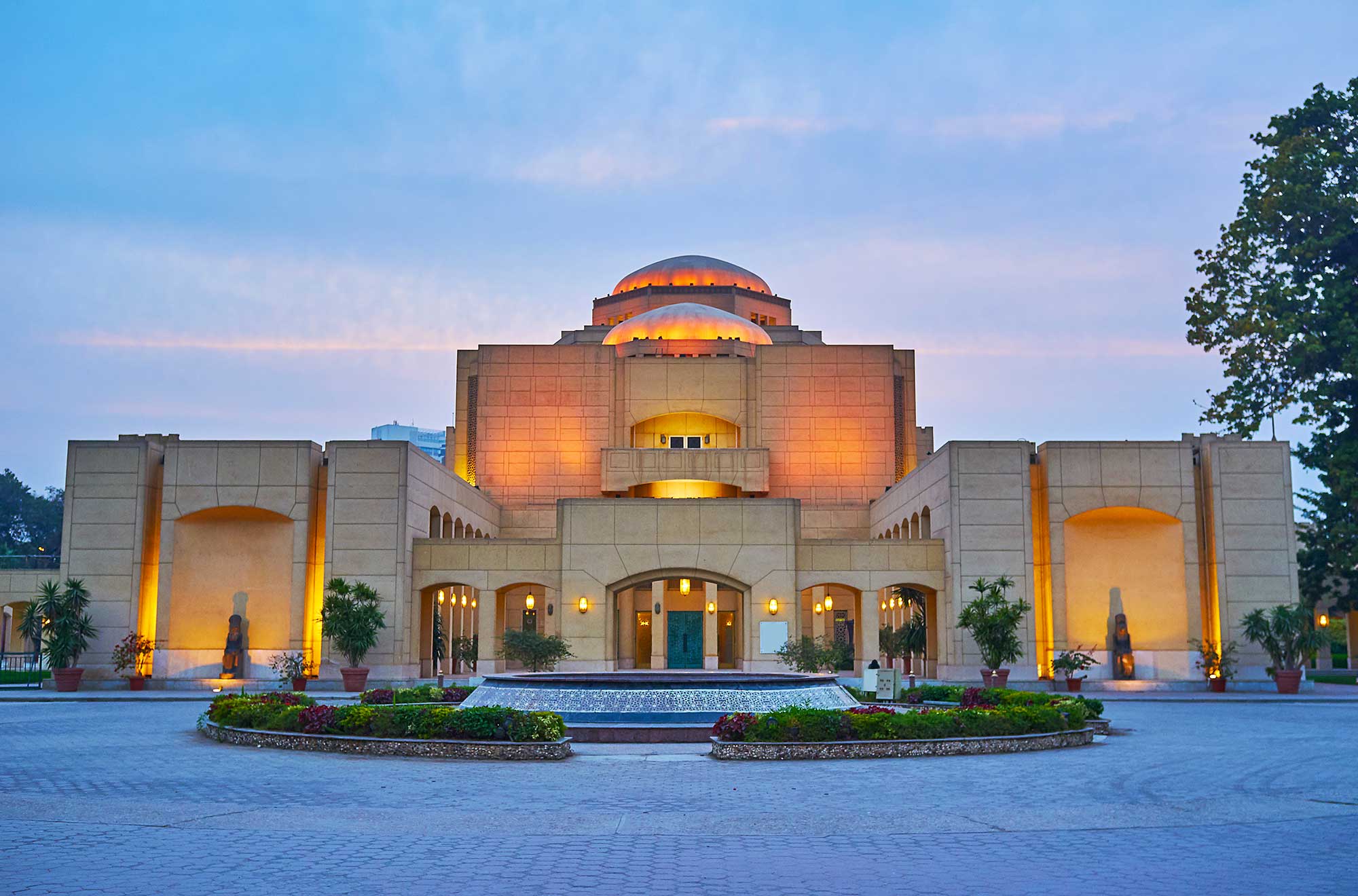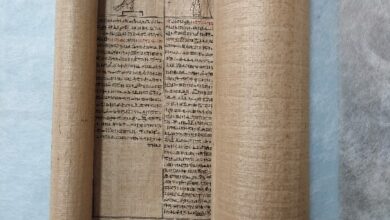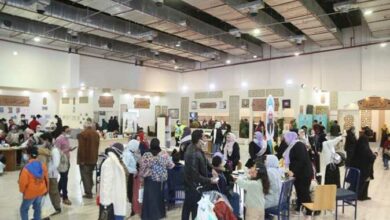Yesterday, near Tahrir square–the place that witnessed the first spark of the revolution–The American University in Cairo Press opened its annual book fair, called “The Tahrir Book Fair.” The opening was honored by the presence of Minister of Culture Dr. Emad Abou Ghazi, who took a tour of the book fair grounds.
“We are organizing a book fair in May at the Opera House, in addition to several exhibitions in different governorates in their correspondent cultural palaces,” Abou Ghazi told Al-Masry Al-Youm. He added that the ministry is planning for another exhibition during Ramadan, but the place is yet to be determined.
Throughout four days, AUC press plans on hosting a different kind of book fair. In addition to featuring hundreds of new publications, it is also hosting numerous book signings, open discussions with authors, and children educational and entertaining activities.
“We planned the whole event in about three weeks, and it turned out to be much more successful than we imagined,” Dax Roque, the AUC Press bookstore manager told Al-Masry Al-Youm. Roque explained that normally the book fair exhibits only AUC Press publications. However, this year they decided to expand and invited different publishers to present different books and novels in different languages.
Nabila Akl, AUC Press promotion manager, said that they have responded to the demands of many publishers who had prepared themselves to participate in Cairo International Book fair (CIBF) and were very disappointed upon its cancellation. Roque added that the Tahrir Book Fair is not by any means an alternative to the CIBF; rather, it’s a chance for Egyptian readers to browse a collection of books while listening to music sponsored by Al-Sawy Culture Wheel, and shop at booths selling clothes and hand crafts. The Tahrir Book Fair is a full cultural experience.
The AUC Press is highlighting its latest books, including Galal Amin’s “Egypt in the Era of Hosni Mubarak” and Alaa Al-Aswany’s “On the State of Egypt,” as well as over 100 publications on Egypt and the Middle East. It also features a new AUC Press-issued Tahrir Anniversary calendar for 2011-2012, which is composed of a series of Roque’s photos taken during the revolution.
Visitors were mostly AUC students and foreigners, along with some young Egyptians. Participating publishers included Diwan, Al-Shorouk, Volume 1, Madbouly, Nahdet Masr, Akhbar al-Youm and others.
In addition to popular novels and bestsellers, booths are set up for medical and engineering books, online bookstores, children books and stories, and language teaching CDs. AUC school of continuing education has a booth advertising course options.
Books about business, emotional intelligence, and success were the most prominent, as were books about Che Guevara and similar revolutionary movements and figures. Used books were also present in the fair in Sour El-Azbakiya (named after Azbakiya wall in downtown where used books are sold), Online Bookspot (for new and old books ordered online), and, most interesting, Revolution Aid, a group selling old books and donating the money to those injured during and after the revolution.
The Tahrir Book Fair naturally themed its first open discussion on Egypt and Egyptian Culture after the revolution. The discussion hosted prominent authors and intellectuals talking about Egypt at this critical crossroad. Author Salwa Bakr insisted that fighting illiteracy is mandatory and should be the first step toward bringing up an educated and aware citizen. She added that Egyptians shouldn’t rush to produce superficial documentation of the revolution. Bakr described the Mubarak era as the most corrupt in history, and accused the cultural sector of serving only the regime and deliberately excluding intellectuals and their work when they happened to go against the system.
Mohammed Salamawy, however, refused to accuse a whole generation, asserting that intellectuals have always advocated for more freedom and social justice. It takes more work to get the average person interested in culture, to stop dealing with culture as a luxury, he said.
So, will the Egyptian personality change after the revolution?
“Egyptians will surely change, but we will have to wait to witness it,” Galal Amin told Al-Masry Al-Youm.
The fair is open from 31 March to 3 April from 10AM to 6PM. Admission (with a valid photo ID) is free.




